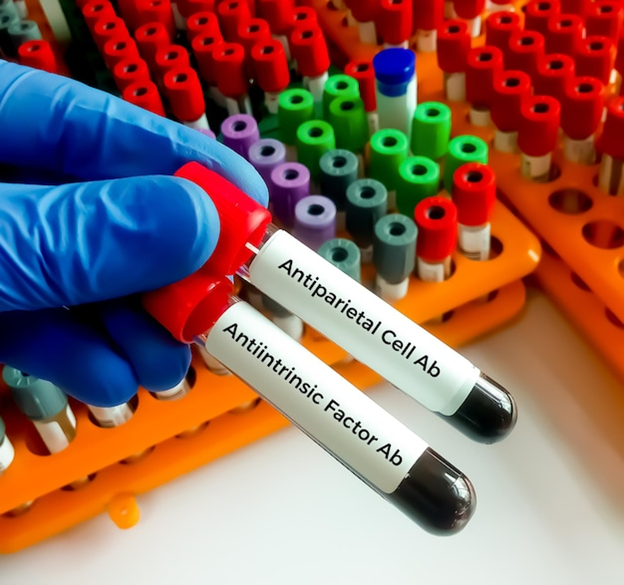Autoimmune diseases happen when the immune system attacks its own body. These illnesses cause inflammation or damage in multiple organs and systems. They aren’t the same for everyone, with different symptoms and effects.
In India, more people have autoimmune diseases lately, similar to abroad. These health issues affect a considerable number in India, our experts estimate. Around the world, many people deal with these conditions daily. Women seem to have them more than men from recent findings. Better awareness and testing help find more cases over the years.
Detecting autoimmune issues early is very important for better outcomes. Early diagnosis helps stop damage and aids in effective treatments. These diseases share signs with other medical problems, making diagnosis tricky. Knowing what to watch for helps in getting timely medical advice on management.
Autoimmune Disease Tests are critical in identifying these disorders accurately.
What Are Autoimmune Diseases?
Autoimmune diseases happen when the immune system wrongly attacks the body. It sees healthy tissues as threats and tries to destroy them. Why this happens is still not clearly understood.
Some common autoimmune diseases found today include lupus and rheumatoid arthritis, among others:
- Lupus: Affects various organs and causes widespread damage.
- Rheumatoid Arthritis: Swells joints, making them hurt and stiff.
- Multiple Sclerosis: Attacks nerves, hurting balance and vision.
- Type 1 Diabetes: Destroys cells that make insulin, a crucial body need.
- Sjogren’s Syndrome: Dries out eyes and mouth, affecting glands that produce fluids. These conditions showcase how varied autoimmune disorders can be across different people.
Managing autoimmune diseases is hard due to their unpredictable nature. Patients face severe symptom times called flare-ups, followed by calmer periods known as remissions. This unpredictability means care plans must often change and adapt quickly.
Recognizing Early Signs and Symptoms
Symptoms of autoimmune diseases can range widely but often include:
- Fatigue: A lasting tiredness that doesn’t improve with rest.
- Joint Pain: Swelling or tenderness, often mistaken for age-related issues.
- Skin Problems: Rashes caused by inflammation can be quite bothersome.
- Digestive Issues: Pain, bloating, and general discomfort might occur.
Besides these, each autoimmune disease has unique symptoms specific to organs.
One major issue in diagnosing autoimmune diseases is overlapping symptoms. For instance, fatigue could come from stress or lifestyle, making it difficult to find its cause early on. Such overlap delays diagnosis, so it’s crucial to see doctors early for proper care.
Symptoms change based on the organs involved in the disease. Using autoimmune markers, doctors can find certain antibodies relating to conditions like lupus with SLE markers. For example, liver issues may indicate autoimmune hepatitis, while aching joints suggest rheumatoid arthritis. This symptom variety calls for personal care and detailed tests to understand the full condition.
Challenges in Autoimmune Disease Diagnosis
Diagnosing these diseases is tricky because there’s no one perfect test. The symptoms can really vary, making it hard to nail down the problem. Autoimmune blood tests help look for specific autoantibodies suggesting conditions like lupus.
Doctors depend on detailed medical history and reported symptoms, along with multiple lab tests. This combo helps them identify patterns that might point to autoimmune disorders and use their understanding to find the cause.
Autoimmune diseases don’t show up big all at once; they often creep in slowly. At first, signs might not seem serious, leading to diagnostic challenges over time. So, doctors continue watching for developments, using repeated blood tests and other methods to figure things out.
The Diagnostic Process Simplified
The diagnostic journey for autoimmune disease tests unfolds like this: 1. Medical History: Doctors review symptoms, family history, and past illnesses. 2. Physical Examination: A close look to find signs of damage or swelling. 3. Diagnostic Tests: Using an autoimmune marker test, imaging studies, or biopsy for a deeper look.
Key lab tests include: – Blood Tests: Finding autoantibodies in autoimmune hepatitis through blood samples. – Markers for SLE: Knowing the most specific marker for SLE helps in diagnosis. – Inflammatory Markers: ESR or CRP levels can indicate inflammation.
These tests identify activities like active autoimmune functions, showing how the body’s immune system works.
Besides blood work, imaging like MRI, CT scans, and ultrasound assist further. They show inside views of organs, displaying changes from constant inflammation. These methods, plus new tests, offer a thorough examination, setting the stage for treatment.
Future of Autoimmune Disease Diagnosis
Autoimmune tests are getting better with new ways to detect them. Cutting-edge tests now use smart machines and blood analysis systems. These methods find specific markers for diseases like lupus and others. CRISPR is a promising tool for spotting these disease markers quickly. People are using machine learning to make these tests faster and easier to understand.
In India, the future of diagnosing autoimmune diseases looks promising. More people can now access blood tests, making healthcare fairer for all. Major hospitals now include comprehensive testing panels in normal checkups, allowing early detection of diseases. They pinpoint markers for conditions such as lupus and Sjogren’s syndrome specifically. Labs are well-equipped to identify autoimmune hepatitis with accurate results.
While advanced tests open doors for early disease detection, they bring challenges. Sophisticated tests may be tough to afford and hard to access widely. Most tests need experts who understand complex readings correctly. It’s important to train more people to handle these detailed disease tests properly. Personalized medicine aiming at immune issues offers hope and complexity ahead.
Don’t ignore the signs. Early testing can make all the difference.
Consult Dr. Divakar Srivastav today for expert guidance and comprehensive autoimmune screening.
Accurate tests. Clear answers. Better health.

